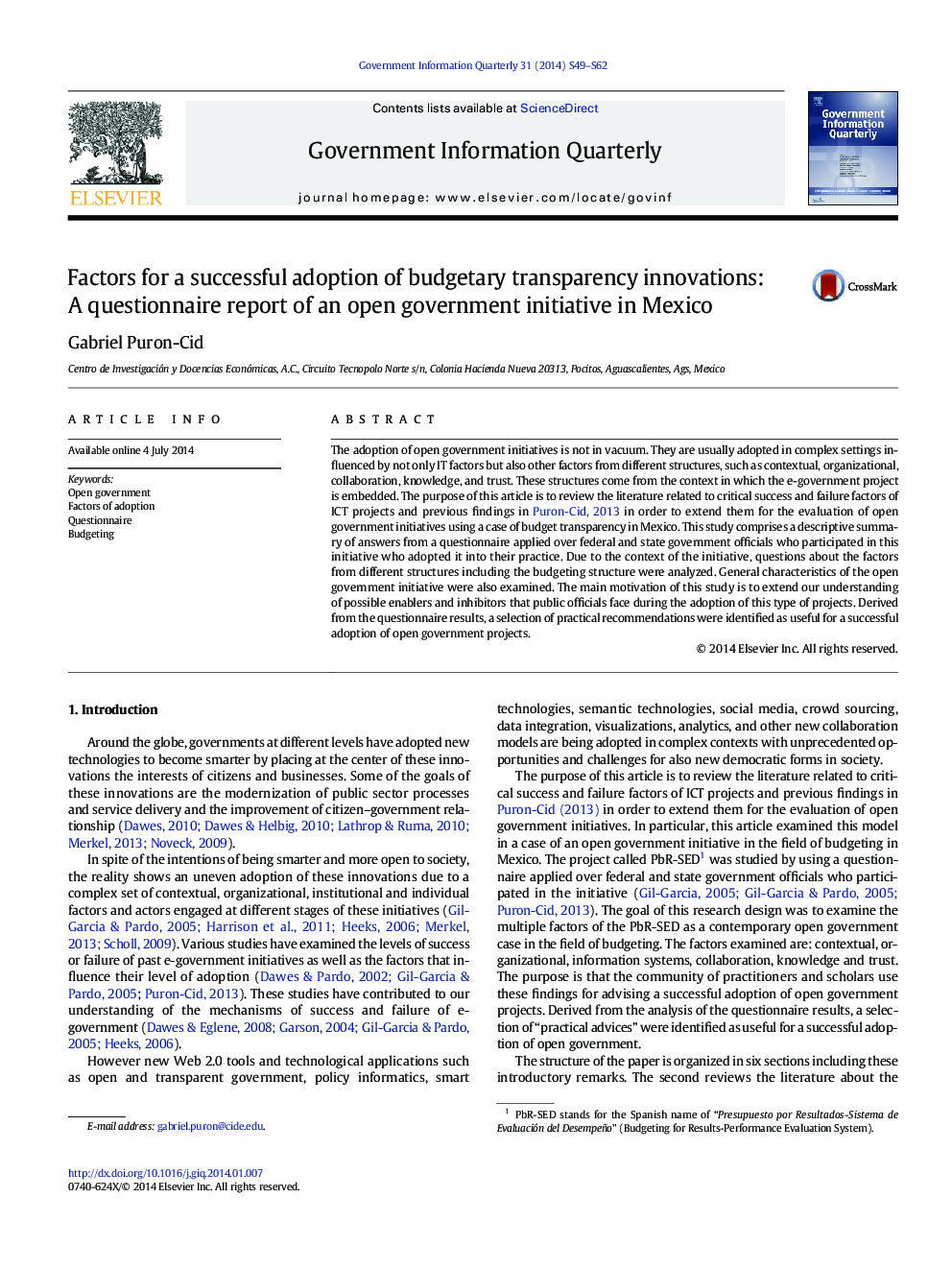| Article ID | Journal | Published Year | Pages | File Type |
|---|---|---|---|---|
| 1024292 | Government Information Quarterly | 2014 | 14 Pages |
•This study explores multiple success factors for open government adoption.•The study examines an open government adoption for budgeting in Mexico.•A questionnaire was applied across different staff members in government.•Various factors of collaboration, knowledge, and trust were highly influential.•Derived from these results some practical advises are presented.
The adoption of open government initiatives is not in vacuum. They are usually adopted in complex settings influenced by not only IT factors but also other factors from different structures, such as contextual, organizational, collaboration, knowledge, and trust. These structures come from the context in which the e-government project is embedded. The purpose of this article is to review the literature related to critical success and failure factors of ICT projects and previous findings in Puron-Cid, 2013 in order to extend them for the evaluation of open government initiatives using a case of budget transparency in Mexico. This study comprises a descriptive summary of answers from a questionnaire applied over federal and state government officials who participated in this initiative who adopted it into their practice. Due to the context of the initiative, questions about the factors from different structures including the budgeting structure were analyzed. General characteristics of the open government initiative were also examined. The main motivation of this study is to extend our understanding of possible enablers and inhibitors that public officials face during the adoption of this type of projects. Derived from the questionnaire results, a selection of practical recommendations were identified as useful for a successful adoption of open government projects.
